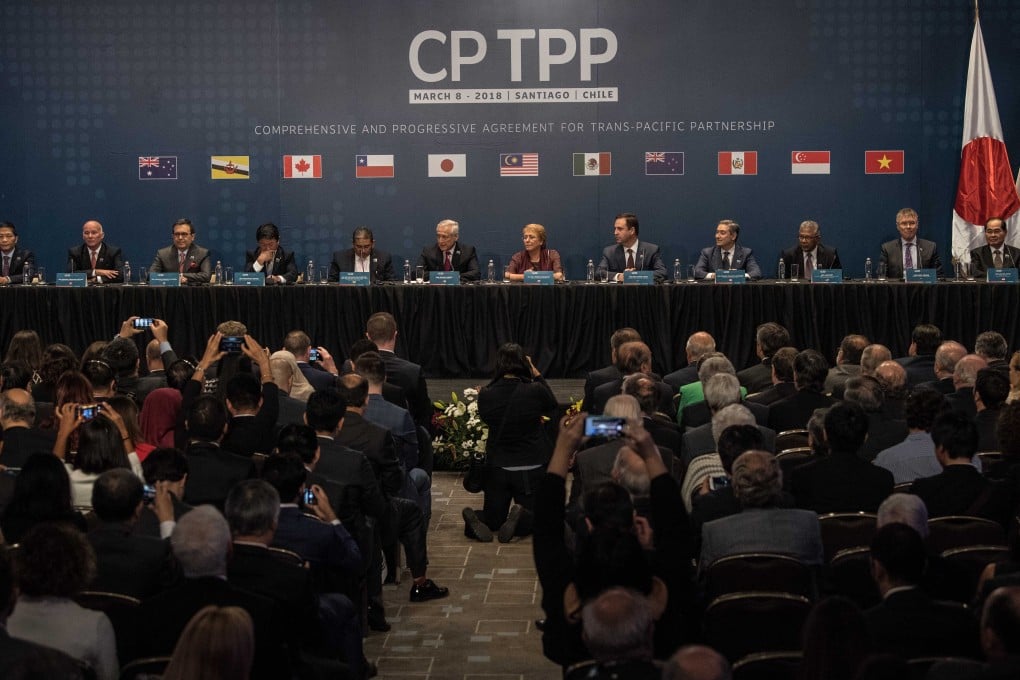China must prove ‘track record of compliance’ with free, open trade if it wants to join CPTPP, Canberra says
- China’s membership would have a significant impact on trade in the Asia-Pacific region at a time of rising geopolitical tensions between Washington and Beijing
- China has implemented a series of informal bans on Australian products including coal, lobsters and log timber as well as imposing anti-dumping duties on wine

Australia said it would not be willing to negotiate China’s application to join the Comprehensive and Progressive Agreement for Trans-Pacific Partnership (CPTPP) unless Beijing removes retaliatory tariffs on Australian goods, as other member countries also flagged caution over Beijing’s application to join the mega trade bloc.
All member countries that have ratified the CPTPP will be allowed to vet China’s application. Some countries, such as Malaysia, have started the ratification process but have not yet reached completion.
China’s membership would have a significant impact on trade in the Asia-Pacific region at a time of rising geopolitical tensions between Washington and Beijing. Australia, which has ratified the deal, said it needs to be confident about China’s “track record of compliance” with free and open trade before considering its entrance to the trade bloc.
Trade minister Dan Tehan said in a statement on Friday that existing members would want to be sure China had met its free trade commitments under the World Trade Organization (WTO) and existing trade agreements, saying it was an important matter that required ministerial engagement.
